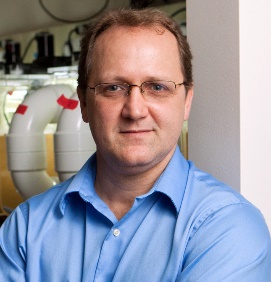Winter 2017 eNewsletter
Director’s Corner: A Letter from CILER’S Director, Dr. Bradley Cardinale
 It’s been a bitter-sweet couple of weeks at CILER. On the sweeter side of things, we submitted our proposal for the next Cooperative Institute for Great Lakes Research. NOAA holds open competitions for cooperative institutes every 10 years, and we used this competition as an opportunity to both reflect on the past and plan for the future. As we summarized CILER’s impacts during its last 10 year cooperative agreement for the proposal, I was pleased to learn we had been awarded more than $35 million to support 185 NOAA-funded projects. These projects went to 74 PIs at 30 research institutions, and supported 434 students and 145 postdocs. Collectively, this work led to 418 journal articles, more than 6,500 citations, and 660+ hits on social media and news outlets. By any standards, the last 10 years have been characterized by a high level of research productivity and impact.
It’s been a bitter-sweet couple of weeks at CILER. On the sweeter side of things, we submitted our proposal for the next Cooperative Institute for Great Lakes Research. NOAA holds open competitions for cooperative institutes every 10 years, and we used this competition as an opportunity to both reflect on the past and plan for the future. As we summarized CILER’s impacts during its last 10 year cooperative agreement for the proposal, I was pleased to learn we had been awarded more than $35 million to support 185 NOAA-funded projects. These projects went to 74 PIs at 30 research institutions, and supported 434 students and 145 postdocs. Collectively, this work led to 418 journal articles, more than 6,500 citations, and 660+ hits on social media and news outlets. By any standards, the last 10 years have been characterized by a high level of research productivity and impact.
I was proud of our team who put together a compelling proposal for the next cooperative institute, outlining new ideas for how we will foster more impactful partnerships across the Great Lakes, support more interdisciplinary research, place a greater focus on co-design of research and data products, and ensure more rapid transitioning of research to applications. I was especially proud of our plans for a new Engagement, Career Training, and Outreach & Communications (ECO) Program that will facilitate the transfer of Great Lakes research and knowledge into actionable science.
But as excited as I am for the new research programs, partnerships, and activities we will bring to the Great Lakes if funded, I was sobered almost immediately after submission of our proposal by leaks of the initial presidential budget. Those leaks foreshadowed the potential of massive budget cuts to NOAA and the EPA, including the elimination of NOAA Sea Grant, and almost total elimination of the Great Lakes Restoration Initiative (GLRI).
My first thought after seeing the leaked budget was about the people who could lose their jobs if budget cuts like this actually come to fruition. NOAA, EPA, Sea Grant, and funding from GLRI collectively employ thousands of people across the Great Lakes. These budget cuts would represent a broken promise of creating new job opportunities in the rust-belt states that ultimately elected Trump.
My second thought strayed toward the consequences of funding cuts for public health. NOAA is the organization that protects the public from toxic algae by warning drinking water intake managers in advance of pending blooms. The EPA is the organization that oversees cleanup of Superfund sites and other Areas of Concern that have become so polluted with toxins like PCBs, dioxin, and heavy metals that they pose cancer risks to society. Sea Grant is one of the major organizations that helps protect commercial and recreational fisheries – an industry that is worth $7 billion annually, and that supports more than 75,000 jobs throughout the Great Lakes. Funding cuts to organizations like these would be a huge step backwards and jeopardize decades of work that has helped make the Great Lakes one of the healthiest, and most prosperous Blue Economies in the world
My final thought was that we cannot stand by idly and watch this happen. Everyone who calls the Great Lakes their home, who has been inspired by their beauty, enjoyed their beaches, fished in their waters, or benefited from their abundant resources, must speak out. We must contact our congressional leaders and ask them to fight to protect the Great Lakes. We must speak out at every opportunity to the public and educate them on the value of the Great Lakes, as well as the value that agencies like NOAA and the EPA bring to them. We must flood social and public media with OpEds, blogs, tweets, Facebook posts, and every other form of communication at our disposal to try and change the course of the current administration.
I have committed myself to doing all of things while I am Director of CILER, whether that be only for another few months, or for 5 years to come should we win the next competitive bid for a Cooperative Institute in the Great Lakes. Please join me in raising our collective voice as a group who cherish the Great Lakes and want to keep the region both healthy and prosperous.
Sincerely,
![]()
Brad Cardinale
Director, Cooperative Institute for Limnology & Ecosystems Research
Professor, School of Natural Resources and Environment
University of Michigan
